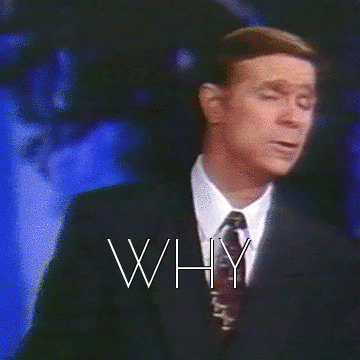Nowadays classical music lovers are grappling with questions of sexism, racism, classism, privilege, accessibility, diversity, canon, and the like.
So I think we can all agree that the best way forward is to emphasize the music of celebrated dead white men.

Or so went the New York Times‘s recent train of thought, as they’ve just published Anthony Tommasini’s essay “The Case for Greatness in Classical Music.”
Tommasini (and by extension the Times) articulate perspectives on the classical music canon that I find thought-provoking, troubling, and ultimately detrimental to the art.
So I invite you to pour out your beverage of choice and follow along as I (try to) verbalize why.
*
Tommasini begins his article describing his childhood introduction to classical music. It strikes me as a chillingly lonely one. (“No one in my extended family, as far as I knew, had sung in a chorus, played the guitar, anything.”) To explore his budding interest, he listened to records and played piano alone in the basement.
At 13, his piano teacher introduced him to Bach’s Mass in B minor, describing it as “the greatest masterpiece of all time.”
Her words made me eager to hear the piece, but also a little wary. It sounded intimidating.

So right off the bat, clearly there’s a lot to break down here.
First and foremost: how do you assess if something is “the greatest masterpiece of all time”? Who on earth is worthy to decide this?
While you ponder that question, here are some fun tidbits largely from this paper on the history of Bach reception. (Disclaimer: it was the first source I found while Googling, and you’ll find information from more prestigious places if you’re well-educated [unlike me] and affiliated with an institution [ditto].)
- The Mass in B minor may not have been performed in its entirety during Bach’s lifetime. (Wikipedia says outright it wasn’t.)
- The estate of Margrave Christian Ludwig of Brandenburg-Schwedt cared famously little about Bach and his legacy. Upon the Margrave’s death, “the estate inventory neither cataloged the Brandenburg [concerto scores] nor even mentioned Bach, but rather included the scores in a bulk lot of 177 concertos while individually listing presumably more important works by Valentini, Venturini and Brescianello.” (x)
- Johann Adolph Scheibe wrote that Bach “demands of the singers and instrumentalists that they should by way of their throats and instruments do precisely that which he can play on the harpsichord… this not only removes from his pieces the beauty of the harmony, but also makes the singing absolutely incomprehensible.” (x)
- Abbe Georg Joseph Vogler wrote in 1800, decades after Bach’s death: “The surprise over the absurdity…is without end… All of this is in exalted church music – to a noble, simple chorale – how unbecoming; how absurd!” (x)

#BACHSHADE
The phrase “the greatest masterpiece of all time” suggests a certain immutable quality present in, well, all times. How can something be judged the “greatest masterpiece of all time” when so many seemingly qualified judges disagreed?
It’s worth looking at how Bach finally did enter the canon. Of course his composer sons had much to do with keeping his legacy alive. But so did one of their patrons and pupils, a Jewish woman named Sara Itzig Levy. She was a keyboard virtuoso who hosted influential musical salons in Berlin in the late eighteenth century. There she played works by J.S. Bach after they had largely receded into history. Her family donated their accumulated Bach scores to the Sing-Akademie, and in 1829 her nephew – a twenty-year-old by the name of Felix Mendelssohn – staged a performance of a version of the St. Matthew Passion. The wider world was finally ready to begin to embrace the music of the past, and this composer in particular. Gradually Bach became the closest thing that we have to a canonized saint.
Would we consider Bach the father of Western music if his wife hadn’t given birth to his sons, or the Mendelssohn family hadn’t taken up the mantle of preservation and advocacy? It seems that even Bach himself required help to secure a place in the canon. His work did not, could not advocate for itself, by itself.
Tommasini clearly cherished the experience of listening to that holy relic of a recording. “I remember vividly how the chorus’s three opening pleas of ‘Kyrie eleison’…affected me.” “Today, after decades of experience with the piece, I still find the beginning of the ‘Kyrie’ overwhelming.”
So the first salvo in this particular opening argument for Bach’s greatness is “I heard this when I was thirteen and I really loved it, and my experience contains an element of universality.”
Surely he can’t build such a critical assessment on this quicksand. So what other traits of Bach’s works have since convinced him of Johann Sebastian’s superiority and worthiness and…well, greatness?
He cites Bach’s “matchless combination” of
- “technical mastery”
- “ingenious musical engineering”
- “profound expressivity”
- “unabashed boldness”

My reaction to this list
I don’t think you’d find many people who’d argue with those descriptors. But let’s drill deeper. What exactly do any of those phrases mean? How might those concepts (especially slippery ones like “expressivity” or “boldness”) be objectively described, much less compared between composers, so as to determine relative greatness?
And again, who is qualified to judge these attributes? The musically well-educated? What composer wins out if well-trained experts disagree? Do their opinions invalidate those of music lovers who might not have the training or the vocabulary to verbalize or even consciously notice these ideas, even though that group of music lovers is so much larger?
So here’s the dead end I always arrive at when engaging with these kinds of arguments. I can’t in good conscience believe that musical greatness is more objective than subjective. Yes, I can say what personally appeals to me: what brandishing of technique I might find matchless, or what expressivity I might find profound. But I can’t expect anyone to take my opinions and assimilate them as fact, like Tommasini’s teacher – and even Tommasini, to a certain extent – did.
And Tommasini seems to accept my perspective as a potentially reasonable one. He acknowledges that “classical music has justifiably been criticized for its obsession with greatness” and with the concept of canonization (both of works and of composers). It even sounds as if, deep down, he has reservations himself: “I, for one, go back and forth about how much this quality [of greatness] should matter, let alone how we should determine it.”
But how can we determine greatness if we have such trouble defining it? That unspoken question remains unanswered.
Tommasini then moves on to describing Beethoven’s Eroica, the poster child for canonization. The qualities he finds great in this work are its
- “colossal” “audacious” “unpredictable” nature
- diversity of character in each movement
- short recurring motifs that link the movements and lend “sweep and structural cohesion”
“Talk about greatness,” he proclaims in summary, as if to dust off his hands and imply case closed. But I can’t follow him to his conclusion. Do all of these elements have to be present at once for a work to be “great”? When and how did we collectively decide that an “unpredictable” nature was evidence of greatness? Or diversity of character and mood? Or even short recurring motifs? Again, who settled on these priorities? Are they still priorities today?
Then – an interesting swerve. Tommasini admits that his “first favorite composer” is not a popular choice: it is Edvard Grieg (“who would not make many people’s top 10 lists”). He describes with love and care various meaningful experiences that he had as a child with Grieg’s works, and implies that his early familiarity with Grieg likely plays into his respect for him.
But alas; mere love for a composer’s output cannot lift him into the pantheon. In fact, “the case for denying Grieg greatness is easy.” Why? Because he didn’t pursue “ambitious musical forms.” He never finished a symphony; he never wrote an opera; he specialized in (horror of horrors, I guess?) chamber music.
“A great? No.” Tommasini is firm on the point.
Now if you ever think about classical music from the perspective of a woman or a minority or an underprivileged person, you probably have a sneaking suspicion why chamber music is classical music’s unwanted love child. It’s easier and cheaper to mount a performance of chamber music than it is to mount a performance of a symphony or opera. And coincidentally (or not…), composers who had the social, professional, or financial clout to pull off those performances were almost always well-educated white men.

Those with power gained the respect. Who’da thunk it?
Plus, chamber music by its very name suggests music for the domestic sphere, private spaces adjacent to all the workaday drudgery carried out there by women or the disadvantaged. There can be greatness there, but not Greatness.
You’re free to agree or disagree with that miniature hot take, but regardless, you have to admit that there is an asterisk beside the name of any composer who gravitates toward chamber music. And it’s not just Tommasini who believes this. Before Brahms was far out of his teens, both Robert and Clara Schumann were pushing him past his creative comfort zone to compose symphonies and operas. And yet…many professional musicians value their experiences playing chamber music more than their experiences playing larger works. They often see it as a purer form of expression. So I have an automatic distrust of any ranking system that penalizes Grieg just for not being Norwegian Mahler.
Should Grieg’s lack of greatness matter? Tommasini asks. “Absolutely not,” he declares. He continues:
Yet I’ve come to accept that I and other lovers of music, like lovers of any art form, can’t help being swept up in the search for, and identification of, greatness.
But…

W H Y
If we can’t satisfactorily describe in a semi-objective way what musical greatness is, or agree on exactly who bestows it or how, then why are we so certain it exists? Why do we spend so much energy canonizing and ranking, in the process devaluing certain works to enhance the reputation of others? (And why do the canonized works so often line up with ones we fell in love with when we were 13?) Why isn’t the way we talk about classical music something more along the lines of “this element is technically brilliant for these reasons; this part tends to evoke these emotions; and many people have had meaningful encounters with this piece, so check it out and let me know what you think”?
All that being said, some of Tommasini’s ideas seem to be in the same neighborhood (maybe). He describes how interacting with classical music “can be as formative a moment as anything in your life. These works, and the composers who wrote them, become living presences; it’s natural to acknowledge the place they hold for us, and to seek reassurance that the things we love are important to others, too.”
But isn’t there a bit of a gap between “acknowledg[ing] the place [composers] hold” in our lives and labeling one of their works “the greatest masterpiece ever written”? It’s a difference between a personal subjective experience and a more universal objective one.
Tommasini goes on to describe his “Top 10 Composers project”, which was a series of articles he wrote in the Times in 2011. Its ostensible goal was “to determine a list of the top 10 composers in history.”
Again:

He takes an interesting view of this project, describing it in his “Greatness” article as “of course…an intellectual game” but also “one played seriously” by him and the 1500+ readers who commented. The juxtapositions of those particular phrases strike me like equating the Top Composers project to Russian Roulette. Implied: “Yes, it’s just a game, but no, it’s not fun. It’s serious as f***, because there are consequences if we get it wrong.”
Tommasini writes that some readers “found the game harmful.”

Me
Others, however, accepted its premise, valued the game, and clearly became really invested in it.
Tommasini describes why it appealed to him personally:
For me, the game was also a genuine exercise in trying to be precise about what makes a composer’s music great, about why a composer merits a place. The final list, as I emphasized, was not the point. The analysis involved in determining it was.
From my perspective, then, I have to wonder: if the list isn’t the point, why are we coupling analysis of work with an exclusionary ranking system and a concept as loaded as “greatest”? I mean, I have my favorite books in the Bible, and if you want, I’ll rank my favorites, but I’m never going to claim that those are the ten greatest, or expend any energy convincing others that my favorites are The Best. As the Internet says, you do you.
Why don’t I share this desire to canonize, to worship, to rank, to simultaneously include and exclude? I genuinely don’t know. Maybe because I’m a woman, and traditionally the wider world hasn’t thought much of what we think? Because I grew up below the poverty line, often feeling worthless and voiceless, so I devalued my own opinions and preferences? (Related: because I came from a small Midwestern town? because I never went to college?) Because I was lucky enough to enjoy a childhood helmed by a single mother, and engaging with classical music together became a way to express our boundless joy at each other’s companionship, rather than a weighty slog meant to mine greatness? Who knows. I don’t.
I suppose then the bottom line question is, why am I so unnerved by Tommasini’s conception of canon? Luckily, that one I think I can answer.
If we can’t come to a widely accepted objective definition of greatness, and simultaneously rely on the concept as a pillar, think about what that means. We’ve built our own legacy on quicksand. Works we don’t know yet are likely worthy of being heard, and that means absorbing works by composers who have been historically marginalized due to sexism, racism, and a host of other -isms that we are only just beginning to comprehend, much less address. A list of “great composers” might now include Beach as well as Bach, Price as well as Puccini.
For some people, these prospects are horrifying. (Especially for those who view the preservation of the classical canon as a zero-sum game.) But for others, it’s liberating and even inspiring. It makes the art personal; it encourages investment. You and I can help create a canon? It’s not just handed down to us from God? What a journey (and a responsibility) that might be! What an atmosphere that might foster! What new people and new demographics we might welcome and meet and learn from!
This perspective also lifts a weight that has burdened composers since Beethoven’s day, when the mythos of The Great Composer was first born. If the quality of musical greatness is viewed as more subjective than objective, then there is so much more room to breathe and to be creative. Composers have enough problems as it is; it seems cruel to add “deification of forerunners” to their psychic plate, too.
Tomassini touches on the subject of the modern composer (albeit in a rather bewildering way) toward the end of his article. Speaking of his Top 10 Composers project, he writes, “As a ground rule I omitted living composers from consideration, arguing that we are just too close to these creators to have enough perspective.” Well, okay; it’s his project and he can make the rules for it! But if that’s reasonable, then where is the dividing line past which we achieve the nirvana of The Appropriate Amount of Perspective? After they retire? After they die? If so, when after they die? Does it happen when their corpse gets wheeled into the crematorium, or is there some kind of a waiting period? On the other hand, if you view the canon as a largely immutable document that can only be altered in emergencies of extreme genius, I guess I can understand the hesitancy.
In the end, I think of my job as bifurcated. I will always be unapologetically hooked by the reality that there is greatness in music… And yet it is just as much my duty to take in the music of our own time, and to help address the inequalities of the classical canon, which was historically reserved for white men only.
But wasn’t the classical canon itself, which was curated by well-educated white men with professional influence and power, a primary tool in driving those inequalities for several centuries? Wasn’t the implicit and explicit message that, despite the fact that women have historically written a great deal of great music, only white male composers could be called “great”, a descriptor that often intimidated us and silenced us and stopped us before we even began? Isn’t advocating for this definition of greatness a tacit embrace of the blinkered perspective that Tommasini seeks to distance himself from? We are living through too important of a moment to dismiss these kinds of questions out of hand.
I don’t want to give the impression that I know what the answers are, because I don’t. But I do know that the conversation surrounding canon shows no sign of stopping, and I think that’s a good and healthy thing…
Maybe someday we’ll quit playing the game, put down our gun, and realize its chamber never held a bullet in the first place.

The only suitable public domain image I found for “Russian Roulette.” I do not write for the New York Times, so my graphics budget is $0, lol. “Russian Roulette with Julian” by Graham Stanley from Flickr
*
Pages referenced:
“The Bach Reception in the 18th and 19th Centuries” by Cory McKay, University of Guelph
Wikipedia article on the “Mass in B minor”
“Johann Sebastian Bach: Brandenburg Concertos”
“Silence from the Salon: In Search of Sara Levy” by Rebecca Cypess, The Avid Listener
And it’s not directly quoted but read it anyway: “Sara Levy’s World” by Nancy Sinkoff, Musicology Now
*
Dr. Erin K. Maher also discussed Tommasini’s article in her blog post “~greatness~“.
If other folks write more, I’ll update this entry with more links!

Dear Emily, I have just one thing to say. Before college I knew a LOT of classical / orchestral / woodwind / concert band music and piano music. I was forced by parents to attend the same University my older brother had just graduated from: IL Wesleyan University in Bloomington, IL. Over time I learned all the music I knew very little about 1) Choral music, 2) Vocal music, 3) Organ music & 4) ALL the “Pre-Baroque” music of which there is a large quantity. During that time I “met” the Bach “Mass in h moll” (b minor) and I was hooked. To this day I can only listen to this work in one of 2 ways: either the entire thing all in one time period or just one “section” at a time and very rarely..
I’m definitely not implying the Bach isn’t a great piece of music! I grew up obsessing over recordings of the Sonatas and Partitas and trying to play them myself, and I’d gladly consider flying halfway across the world if a violinist I loved was giving a cycle in-concert somewhere. I’ve never run out of things to find in them, intellectually, emotionally, and spiritually. But I am questioning the usefulness of sticking the “greatest” label on the Mass, the S&Ps, or any other piece of music.
I enjoyed the NYT article too. Thanks for continuing the discussion. I know I’m supposed to find Bach great, but I just don’t. At the same time while I wish other people would find Gubaidulina great, they just can’t. And I’ve learned to be ok with that.
Gif usage on point!
Great stuff, Emily!
I subscribe to the NYT because they are a net good in the world. But Tommasini’s superficial trashy article, which wouldn‘t pass muster in an undergraduate cultural studies class, does make me gnash my teeth.
Thanks for taking the time to deep-clean this particular clock:-)
Great stuff, Emily!
Nothing to add but I would like to subscribe to comments.
Thanks.
My absolute desert island favorite composers include Vivaldi and Cimarosa, so I just wanted to say “thank you.”
Thought-provoking analysis. It opens the door wider to other forms of music and expression, too, those not closely guarded by old white men.